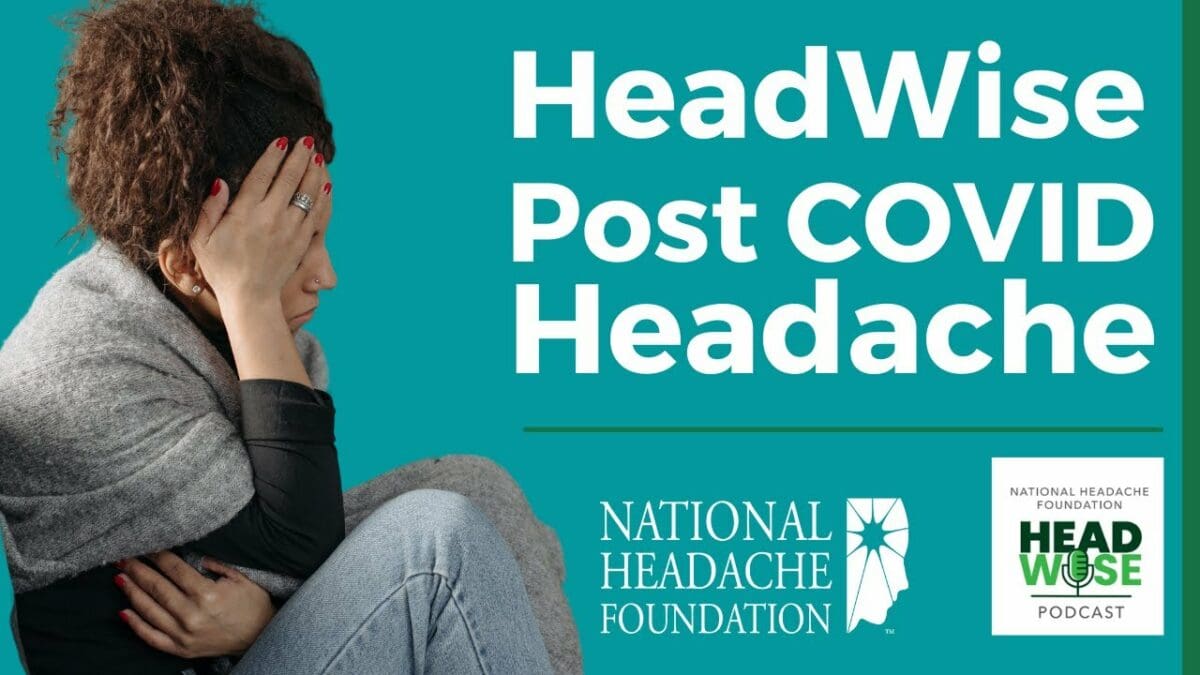Understanding Post-COVID Headache: What You Need to Know
COVID-19 has impacted millions worldwide, leading to a range of symptoms, including headache that persist long after the initial infection.
Whether a new headache disorder has developed post-COVID or an existing headache disorder has worsened, understanding how COVID-19 affects the nervous system is essential for effective management.
This page explores the nature of post-COVID headache, why it occurs, and when to seek medical help.

What is a Post-COVID Headache?
Many people report developing new or worsening headache after a COVID-19 infection. The headache can present in different forms:
- New Daily Persistent Headache (NDPH): A headache that begins on a specific day (often coinciding with a COVID-19 infection) and persists continuously for at least three months without significant relief.
- Exacerbation of Existing Headache Disorders: Individuals with a history of migraine or tension-type headache often experience worsening symptoms after a COVID-19 infection.
Why Do Some People Develop Headache After COVID-19?
There are several reasons why COVID-19 might trigger headache:
- Neurological Involvement: COVID-19 can affect the nervous system by entering through the respiratory system and binding to ACE2 receptors found in neurons and lung tissue.
- Neurotropism: The virus may enter the central nervous system via several routes, including the nasal passage (olfactory route) and the blood-brain barrier. Even without directly invading the central nervous system, COVID-19 can cause neuroinflammation.
- Neuroinflammation: The inflammatory response triggered by the virus can lead to a prolonged headache. This process involves the release of inflammatory mediators and cytokines, which can exacerbate symptoms in individuals with pre-existing headache disorders.
How Long Do Post-COVID Headache Last?
The duration of post-COVID headache can vary:
- Studies suggest that while some people experience headache for a short period after infection, others may have persistent symptoms for months. For example, a study in the UK found that 13% of patients reported symptoms at one month, decreasing to 4.5% at two months.
- There is still much to learn about the long-term effects of COVID-19, and ongoing research is crucial to understand the full spectrum of post-COVID symptoms.
When to Seek Help for Post-COVID Headache
If you are experiencing new or worsening headaches following a COVID-19 infection, do not wait to seek help. You should contact a healthcare provider immediately if:
- Your headache has changed in quality, character, or frequency.
- You experience new neurological symptoms, such as confusion, vision changes, or difficulty speaking.
- Your current migraine or headache treatment is no longer effective.
These symptoms may indicate a more serious condition, such as stroke or thrombosis, and should be evaluated promptly.
Managing Post-COVID Headache
- Continue Existing Treatments: For most individuals, continuing with their prescribed migraine or headache medications is recommended. However, be aware that it may take longer for treatments to be effective due to the heightened inflammatory response caused by the virus.
- Consider Additional Therapies: In severe cases, additional treatments like steroids may be necessary. If new symptoms appear, further imaging or testing may be required to rule out other complications.
If you are struggling with headache after a COVID-19 infection, remember:
- You Are Not Alone: Many people are experiencing similar symptoms, and healthcare professionals are actively researching and working on solutions.
- Communicate with Your Provider: Share your symptoms openly with your healthcare provider, even if you think they are unrelated to COVID-19. This includes discussing any anxiety, depression, or fatigue you may be feeling.
- Don’t Hesitate to Ask for Help: Post-COVID symptoms can be challenging to manage, but seeking help is not a sign of weakness. If your symptoms are worsening or not improving, consult your healthcare provider for further guidance.
This resource is based on HeadWise Episode 148: Post-COVID Headache with Vince Martin, MD
Published 02/22/2023
Learn More
Subscribe for News and Updates
Stay informed with the latest news, updates, and episodes from the HeadWise podcast.

